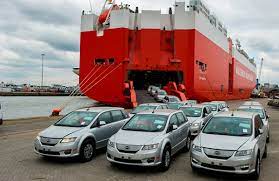Nigeria, Africa’s most populous nation with approximately 200 million inhabitants, faces formidable economic challenges. Over the past two decades, the country’s population has surged by roughly 70 million, underscoring the urgent need for economic diversification. According to Malthusian theory, population growth outpaces food production, creating a disequilibrium that can only be addressed through significant economic shifts, particularly in export-oriented manufacturing. This approach would not only create jobs but also generate much-needed foreign exchange. However, recent data paints a grim picture of Nigeria’s progress towards this goal.
The Manufacturers Association of Nigeria (MAN) has reported an alarming decline in the sector. In March 2024, MAN disclosed that approximately 767 companies had ceased operations, with an additional 335 experiencing severe distress in 2023 alone. This downward spiral is attributed to a perfect storm of economic challenges, including exchange rate volatility, skyrocketing inflation, a deteriorating investment climate, and the soaring cost of doing business. The situation has led to a troubling increase in unsold finished products inventory, reaching a staggering N350 billion, while real growth has plummeted to 2.4%, indicating a sharp decline in consumer purchasing power.
The ripple effects of this manufacturing crisis extend far beyond large corporations. The Micro, Small and Medium Scale Enterprises (MSMEs) sector, often considered the backbone of any thriving economy, has been hit particularly hard. Out of the 40 million MSMEs in Nigeria, a shocking 10 million shut their doors in 2023 due to economic hardship. Femi Egbesola, president of the Association of Small Business Owners of Nigeria (ASBON), aptly noted that this 25% decline in businesses is not just alarming—it’s a scenario that would warrant a state of emergency in many countries.
Egbesola highlighted a critical issue that goes beyond mere numbers: the lack of growth and progression among businesses. He poignantly observed, “For the past 10 years, how many micro or small businesses have become large businesses? You will never see it, and that tells you that there is a lacuna and that something is mitigating against growth.” This stagnation has far-reaching consequences, leading to increased unemployment, a dearth of innovation, stagnant GDP, and persistent poverty. These factors, in turn, fuel a host of social problems, from rising crime rates to the ongoing brain drain that robs Nigeria of its brightest talents.
The current crisis is particularly disheartening when one considers Nigeria’s rich industrial history. Northern Nigeria was once a thriving hub for textile industries, home to renowned companies such as Kaduna Textile Limited, Arewa Textile, United Nigeria Textile Limited, and Zamfara Textile Industries Limited. However, these once-proud institutions, along with numerous others across various sectors—including detergent production, paper mills, tyre production, car assembly, and food and beverage industries—have all shuttered their operations. The reasons for their demise are manifold: inconsistent government policies, lack of protection for local industries, runaway inflation, unreliable electricity supply, unregulated imports, and the burden of multiple taxations.
Despite this bleak landscape, there are glimmers of hope on the horizon. President Bola Tinubu’s administration has initiated several economic and social intervention programmes aimed at empowering enterprises sustainably. These include the ambitious N200 billion Presidential Intervention Fund, the Digital and Creative Enterprises (IDICE) programme, the Skill-up Artisans Programme (SUPA), Nano Business Support, and Micro and Small Business Loan initiatives. Furthermore, the government is making significant investments in infrastructure and agriculture, implementing social intervention measures, and injecting $2.25 billion into the economy to enhance revenue and support broader economic reforms. The establishment of a 31-member economic coordination committee is also expected to generate fresh ideas and strategies to reverse the current downward trend.
However, given the severity of the crisis in the manufacturing sector, more decisive and targeted action is urgently needed. The government should seriously consider declaring a state of emergency in the manufacturing sector and develop comprehensive strategies to revive dying or distressed companies. Implementing policies to improve the overall economic environment is crucial, but it must be coupled with sector-specific interventions. Providing a lifeline to the manufacturing sector through MAN could involve offering interest-free loans, instituting tax holidays, and implementing import restrictions to protect and nurture local industries.
The revival of Nigeria’s manufacturing sector is not merely an economic imperative; it is a social one as well. A thriving industrial base would create much-needed jobs, stimulate innovation, and contribute significantly to Nigeria’s GDP. Moreover, it would help address the root causes of many social issues plaguing the country, from rampant unemployment to rising crime rates and the ongoing brain drain phenomenon that threatens Nigeria’s future prosperity.
As Nigeria stands at this critical juncture, it is imperative that the government recognizes the urgency of the situation and takes bold, decisive steps to reverse the decline in the manufacturing sector. By fostering an environment conducive to industrial growth and providing targeted support to struggling businesses, Nigeria can harness its vast human and natural resources to build a robust, diversified economy. The time for action is now.
The path forward will not be easy, but with concerted effort, strategic planning, and unwavering commitment from both the public and private sectors, Nigeria can revitalise its manufacturing industry. This revival will restore hope and opportunity to millions of Nigerians, paving the way for a brighter, more prosperous future for Africa’s giant.
